Page 11 • (231 results in 0.021 seconds)
-
About: We’re an early stage startup company developing eco-friendly and bio-renewable surfactant chemicals for consumer products, such as laundry detergents and personal care products. Sironix has invented and developed a new surfactant molecule that will make our consumer products work better and benefit our environment.…
. This is a part-time, hourly-pay position. Hours & start/end dates are flexible. Responsibilities: Conduct performance testing on Sironix surfactants and develop new applications – Assist in designing, constructing, and troubleshooting new reactor systems for surfactants production – Write formal research reports, both internal and for publication – Prioritize and meet deadlines, while managing the multiple research projects – Assess and review new technology, academic research, and patents
-
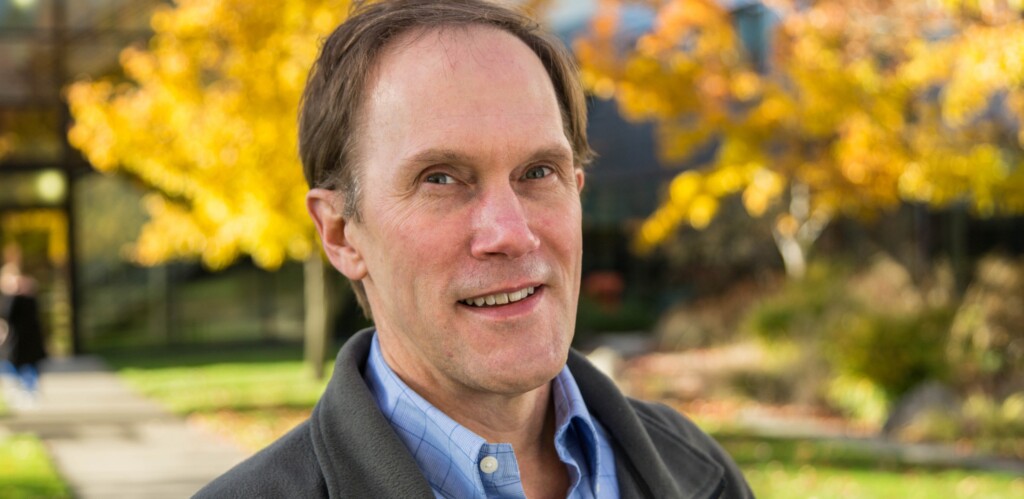
TACOMA, WASH. (April 30, 2020) — The National Science Foundation has awarded PLU and Professor of Chemistry Dean Waldow a $230,000 grant over three years to continue his research with students into polymers and ion conductors that could revolutionize the lithium-ion batteries used in cars…
years to continue his research with students into polymers and ion conductors that could revolutionize the lithium-ion batteries used in cars and other vehicles.Polymers that can conduct ions are important for many emerging technologies, such as lithium-ion batteries and next-generation batteries, as well as new types of polymer-based transistors that could be used as sensors in biological systems. These materials may lead to increased safety and performance of batteries, which is crucial as their
-

Travis McDaneld ’23 is entering his fourth year at PLU as an economics major, minoring in data science. When he enrolled at PLU, he had every intention of majoring in business, although he admits to not having any idea about what he wanted to do…
was the case. Can you describe your duties as a data analyst? My job, most of it, is ad hoc. I perform some system checks. So there are lots of systems that data goes through on the way to the Portfolio Analytics and Reporting (PARis) system. I will do automated checks within a few of those systems with Structured Query Language (SQL), the database language, and basically, make sure the data is clean, valid, and accurate. If it’s not, I will often have to reach out either interdepartmentally or
-

TACOMA, WASH. (March 17, 2016)- Joshua Cushman ’08 stood in front of a crowd at the Wang Center Symposium last month and recalled his childhood in which nobody asked him about his future. The Tacoma native was the product of a broken home, plagued by…
stereotyping. Growing up as a Latino male, Cushman says he wholeheartedly identifies with many, if not all, of the struggles these young men of color face in the modern world. Many of these struggles include a lack of representation in the education and justice systems. He believes schools need to create safe spaces for teachers and mentors to talk about assumptions and stereotypes to uplift young men of color as they come into their own. “It should be our responsibility to increase opportunities for these
-

Travis McDaneld ’23 is entering his fourth year at PLU as an economics major, minoring in data science. When he enrolled at PLU, he had every intention of majoring in business, although he admits to not having any idea about what he wanted to do…
internship, but it was a funny coincidence, and he knew enough about the work to know that it would be a good fit for me. So I made that one of my applications, and that just happened to be the one I got an interview for, and I’m thankful that was the case. Can you describe your duties as a data analyst? My job, most of it, is ad hoc. I perform some system checks. So there are lots of systems that data goes through on the way to the Portfolio Analytics and Reporting (PARis) system. I will do automated
-

Growing up in a small town in Idaho, Lorelei Juntunen ’97 had not spent much time in cities. But when she moved to Parkland to attend PLU, she suddenly had access not only to local cities like Tacoma and Seattle, but also to cities across…
. While at PLU, Juntunen grew curious about the design and growth of cities like Tacoma and Seattle. “I began thinking about how we build our cities, how we organize our open space and our physical buildings and infrastructure, how it intersects with social systems and economic systems,” she remembers. Graduating from PLU with degrees in English and Global Studies, Juntunen went on to do graduate work in public administration and community and regional planning, focusing on finance and public
-
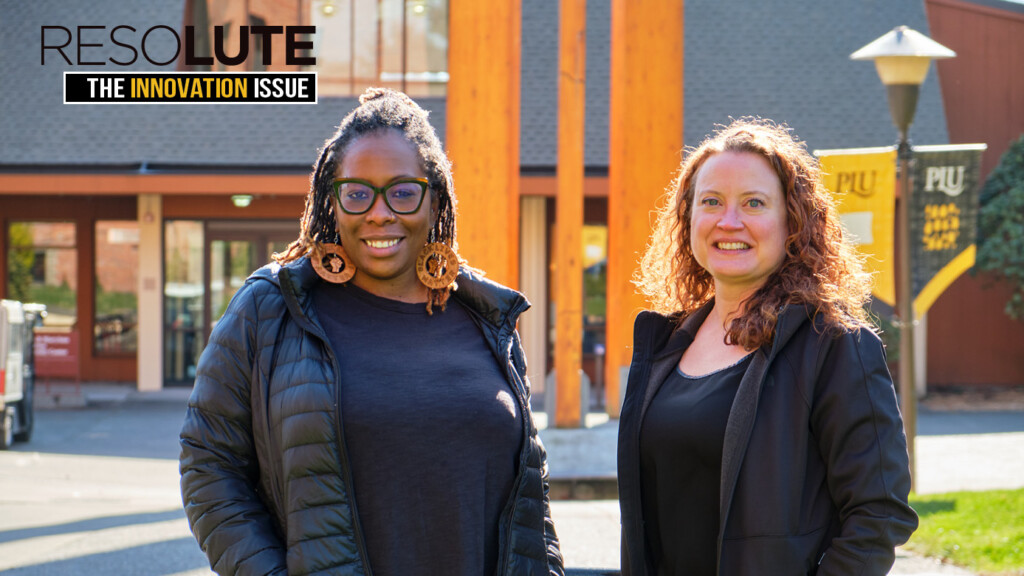
In 2022 — when polarities abound and institutions and individuals alike have been called to reflect, redefine and transform — what does it mean to call the work of equity “innovative”? As a concept, innovation can be used interchangeably with words like ingenuity, progress, newness,…
“innovative” yet because I need to understand what it actually can mean outside the constraints in which it’s been formulated.Jen: Right. There were ways before our current ways. And so are we to look at our D&I work as a “new” way? Or does removing the cloaks of the various systems of oppression to uncover the ways that were there before, specifically indigenous ways, move us to whatever goals we have around D&I work? Maya: Yeah. And I keep thinking about diversity and inclusion as values, as things that
-
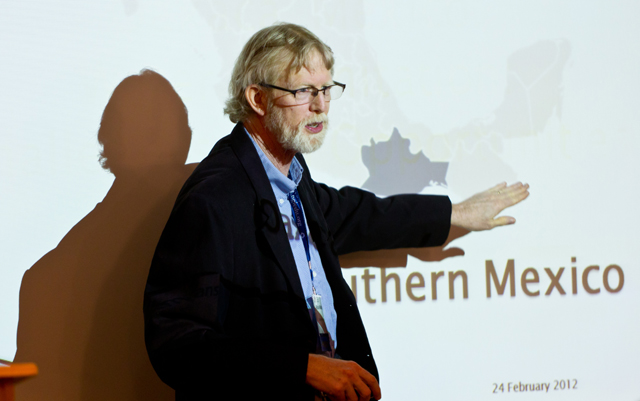
Rick McKenney, Executive Director, Water for Humans, speaks about water issues in Oaxaca, Mexico. (Photo by John Froschauer) Suffering from Water in Oaxaca By Katie Scaff ’13 We all need water, said Rick McKenney, executive director of Water for Humans. McKenney kicked off the second…
take on projects that improve public health and reduce disease. “We feel there’s plenty of water, we just need to capture it and use it correctly,” McKenney said. McKenney highlighted three of their current projects in Oaxaca, Mexico in his discussion Friday morning. The projects include building 8,000-gallon rainwater catchment systems as part of a rainwater harvesting program in the Bravo Ahuja district of Oaxaca, creating a wetland for sewage treatment in Santo Domingo Barrio Bajo Etla, and
-
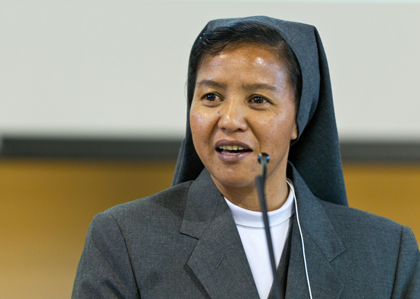
The Role of Water Among Women in Shillong, India By Katie Scaff ’13 Water is a prime resource, a basic human need, and a precious asset, according to Sister Helen Puwein, a native of Shillong, India and head of Bellefonte Community College. “Every living thing…
water projects, according to Puwein. Simple water filtration systems and wells would lead to a better life for these women and their children. “Scarcity of water is a threat to human life,” Puwein said. About 30 individuals came to her Puwein’s discussion, including first-year Jess Tveit, who intends to study abroad in India next spring. “I was surprised by how many women work in the mines,” Tveit said. “I didn’t know how bad the water contamination was.” Read Previous ‘Water is the great teacher
-
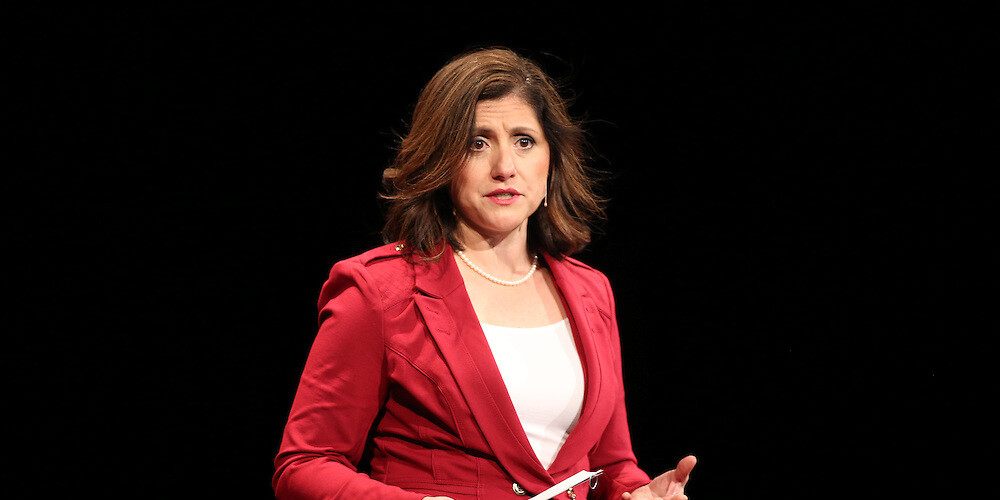
The most recent book by Maria Chávez, professor of political science, has been honored with the Latino Politics Best Book Prize by the American Political Science Association Latino Caucus. The book, Latino Professionals in America: Testimonios of Policy, Perseverance, and Success , combines rich qualitative…
science–and my colleagues in it–recognize the importance of examining systems of oppression when studying obstacles placed before people of color,” said Chávez. “Most importantly, this award is important to me because it is all about the first generation students of color who will hopefully see themselves in it, and in so doing, will come to understand through the experiences of the Latino professionals interviewed that power and inequality are at the heart of the matter,” Chávez continued. “This
Do you have any feedback for us? If so, feel free to use our Feedback Form.


